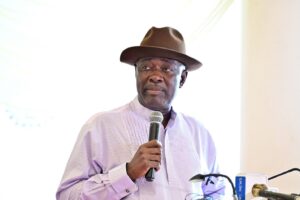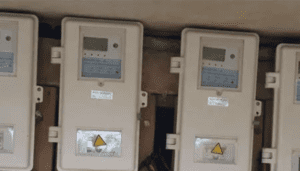
Lagos needs $33bn to overcome energy crisis by 2030 — GM Electricity Board
…Targets 3,000 MW through public-private partnerships to address power deficit
Lagos State requires between $14 billion and $33 billion in investment to address its energy generation needs by 2030, the General Manager of the Lagos State Electricity Board (LSEB), Mr. Kamaldeen Balogun, has revealed.
Speaking at the 15th Ralph Alabi Memorial Lecture and induction ceremony for new corporate members of the Nigerian Society of Engineers (NSE), Ikeja Chapter, Balogun underscored the urgent need for substantial investments to address the state’s ongoing power challenges.
According to Balogun, while Lagos currently receives only 1,000 megawatts of power daily — well below the state’s required 9,000 MW — the funds are crucial to bridge this deficit.
The figures were sourced from the Lagos Bureau of Statistics and point to the power sector as the state’s “biggest infrastructure and developmental challenge.”
“The state is determined to meet its growing energy demands,” Balogun said. “The 2023 Electricity Act now empowers states like Lagos to generate, transmit, and distribute energy, creating new opportunities for local and international investors.”
Balogun outlined a comprehensive plan for the future of Lagos’ energy sector, which includes a focus on renewable energy sources such as solar, as well as gas-to-power projects, independent power plants (IPPs), and mini-grid solutions for underserved areas.
He also highlighted the need for energy storage systems and the integration of smart grid technologies to boost reliability and efficiency in power distribution.
“By 2030, Lagos aims to generate 3,000 MW of electricity through a well-structured electricity market involving independent power producers,” he stated. “This will be complemented by expanding distribution networks and increasing renewable energy capacity, particularly solar power and off-grid solutions.”
The GM further emphasised that partnerships between the public and private sectors (PPPs) would be critical for financing these projects and scaling up infrastructure. He also revealed plans to create new agencies, including the Lagos State Electricity Regulatory Commission and Lagos Power Rangers, to drive the city’s energy ambitions.
The Lagos Electricity Market Implementation Plan, which targets a total of 1,000 MW from renewable energy sources, is expected to modernise the state’s grid and promote private sector participation in power generation and distribution.
The NSE’s President, Mrs. Margaret Oguntala, in her remarks, praised the Ikeja chapter for honouring the late Engineer Ralph Alabi, whose legacy as a trailblazer in engineering continues to inspire the industry. Oguntala stressed the significance of stable and affordable power for national economic stability and industrial growth.
“The power sector remains one of the most critical foundations for economic development in Nigeria,” Oguntala said. “With the Lagos Power Bill now giving the state control over its energy destiny, it is crucial that the state takes advantage of the opportunities this shift presents.”
The Chairperson of NSE Ikeja, Ms. Nimot Muili, reiterated that Lagos is now poised to lead the charge in renewable energy adoption, which will not only address local power shortages but also contribute to global climate change mitigation efforts. She called for greater collaboration between the government and the private sector to accelerate the development of sustainable energy infrastructure in the state.




